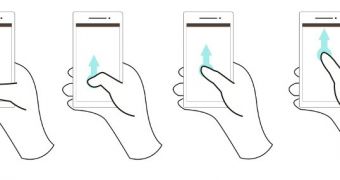Canonical is working tirelessly on Ubuntu for phones, and the developers are trying to improve every aspect of the experience. One of the most important components of Ubuntu, the browser, will also receive some changes that will definitely set it apart from everything else.
There is no doubt that one of the most important apps used on a phone is the Internet browser, whatever it might be. It's a piece of software that interacts with numerous other components and lots of other apps have functions that call upon the browser.
This means that when you are building a new operating system from scratch, like Canonical is doing with Ubuntu Touch, one of the main concerns of the developers will be the Internet browser and all of its functions.
As it turns out, Ubuntu devs are trying to improve a few features of the Internet browser in a way that hasn't been done with similar applications on other operating systems that are running on mobile devices. Two of the most used features on the desktop, and probably the most underused on the mobile device, are the history and the bookmarks.
Because of the inherent design of a mobile device, it's not easy to call upon the history or the bookmarks in an Internet browser in the same way you're doing it on the desktop. It's also hard to redesign the entire concept of an Internet browser, and users might not think too kindly about it.
The only course of action is to improve the current system in a way that also takes advantage of the Ubuntu Touch features, in this case the bottom edge, which has been built as a very powerful user tool.
“Therefore we redesigned tabs, history and bookmarks to display the most recent information first. Consequently, the display and the retrieval of information is simplified.”
“Browser history has not changed much since Netscape Navigator; modern browser still display a chronological log of all the web pages we visited starting from today. Finding a website or a page is hard because of the sheer amount of information. In our browser we employ a clustered model where you display the last visited websites, not every single page. On tap, you then display all webpages for that websites, starting from the most recent. In this way scanning the history log is much easier and less painful,” said Giorgio Venturi, User Experience Lead for Canonical.
The developers have been kind enough to provide a video that presents the features in great detail, showing off the improvements in the browser for Ubuntu Touch.
Enjoy!

 14 DAY TRIAL //
14 DAY TRIAL // 